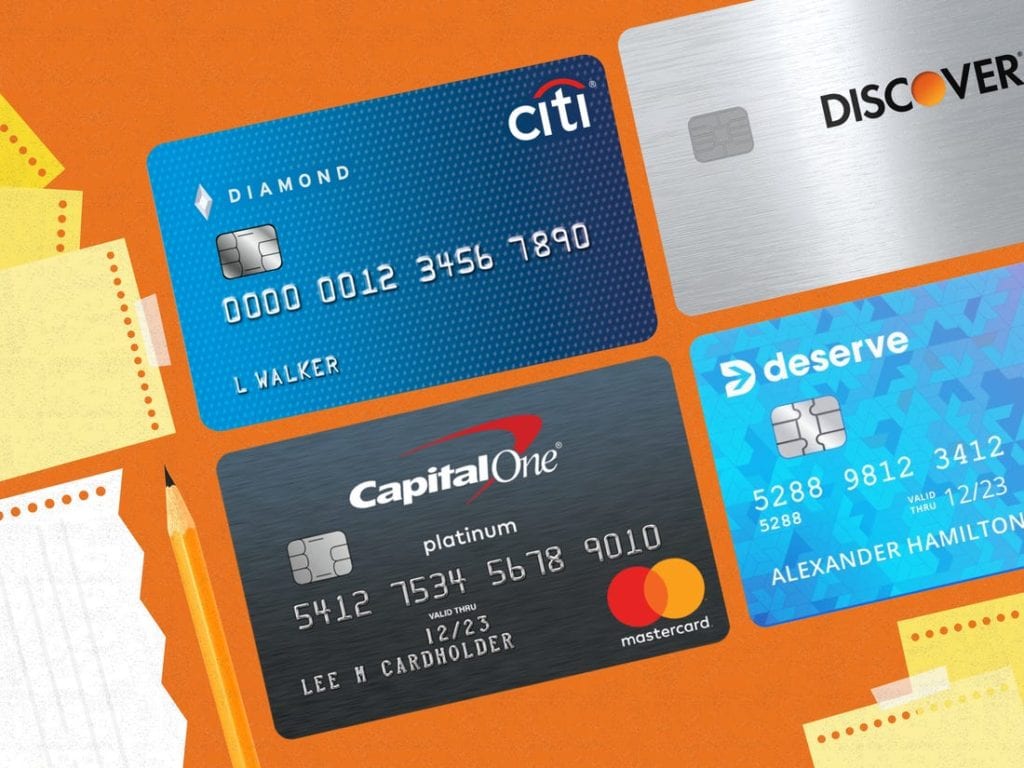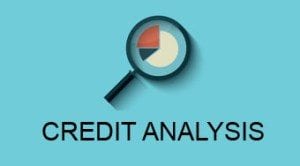One of the most effective tools to build or rebuild credit, are secured credit cards. Yet, you might be unclear as to whether a secured card actually makes sense for you, or how these cards actually work. Let’s dig in.
What Is A Secured Credit Card?
A secured credit card operates in a very simple manner: You provide the credit card company with a deposit, which usually becomes your spending limit on the card. So, let’s say you open a secured credit card with a $200.00 deposit. You normally can’t spend more than that amount. There are exceptions to this rule, but we’ll get to that later.
Because you’ve provided the credit card issuer with a deposit (which equals your spending limit), you’ve reduced their risks, in the event you don’t make payments on the card. If you stop paying, they can simply take your deposit, and apply it towards part or all of what you owe. For this reason, it is much easier to be approved for secured credit cards than standard credit cards, if you have weak credit, or very little credit history.
In many respects, a secured credit card operates like any other credit card. You have a spending limit, which you can’t exceed. If you make purchases on the card, you’ll either need to pay off that balance each month, or pay interest on the amount you spent. In some cases, you might be able to earn cashback points.
What Are The Benefits Of A Secured Credit Card?
A secured credit card allows you to build a better credit score. A credit card issuer will report your payments each month, to the three credit major credit bureaus (Experian, Equifax and TransUnion), every single month.
Since your payment history accounts for 35% of your FICO score, paying on time each month, over the long run, greatly benefits your score. Of course, paying late will result in major damage to your credit.
Secured credit cards are fairly easy in terms of approval standards – they are designed for people who are either new to credit, or had credit issues in the past. Some cards don’t even conduct credit checks, although others are a bit more strict, particularly if you have filed for bankruptcy in the past. If you filed bankruptcy and haven’t completed the discharge process yet, we suggest doing so, before applying for any secured credit cards.
A secured card might also allow you to earn rewards in various categories, such as cashback, travel, or other rewards points. Some card issuers offer additional rewards for spending in various categories, such as groceries or food.
A secured credit card also allows you to upgrade to an unsecured credit card, after paying on time for a certain period of time (usually 8 to 12 months). This means your deposit will be returned, and you can further great credit (since you’ll enjoy a higher spending limit), and earn more cashback, travel and rewards points.
What Are The Drawbacks Of A Secured Credit Card?
Secured credit cards, like all other cards, aren’t perfect. If you carry a balance, the interest rates are high – with annual percentage rates (APR) as much as 24%. For this reason, it makes a lot of sense to pay off the entire balance/spending on your cards, every single month.
Secured cards don’t allow for as much spending as unsecured cards, since your limit is mainly determined by your security deposit. Also, rewards like travel points and cashback are more limited, compared to unsecured cards, since your credit score and spending limit is probably lower.
Lastly, some secured credit cards do involve an annual fee, typically around $35 to $40. This is especially true if you’re applying for a card which is bankruptcy friendly, like the OpenSky secured credit card from Visa.
Should You Sign Up For A Secured Credit Card?
Secured cards aren’t for everyone. To decide whether it is for you, answer the following questions.
1. Where is your credit score today?
You can get your FICO score for free from Discover or freecreditscore.com. If you either don’t have a FICO score, or your score is below 620, then signing up for a secured card could help.. If your score is above 630, you could probably qualify for a decent unsecured card, so a secured card will be of limited value. You can research credit card options at NerdWallet.
2. Can You Make The Monthly Payments?
While secured credit cards carry low spending limits, and don’t require you to spend much, you do need to make monthly payments (we suggest paying off the balance in full). Therefore, you need to make sure you are earning sufficient income (or have savings) to meet those amounts. If you are not currently working, or are working in a position where you’re having trouble meeting basic expenses like food, utilies and rent, we suggest waiting to build credit, until you’re more financially stable.
Managing A Secured Credit Card
The purpose of opening a secured credit card is to build a stronger credit score. Therefore, you’ll want to do two things: Always pay on time, and maintain a low balance – which you pay off in full each month
In order to pay on time, you might make a note on your calendar to pay your bill on a specific day each month, and stick to that schedule. However, we get busy. Things happen.
An even better approach might be to set up automatic payment (popularly known as autopay). With autopay, once it’s set up, you don’t have to do anything. The card issuer will deduct a predetermined amount each month (let’s say the minimum payment, or the statement balance).
You can set up autopay through your credit card issuer. We also suggest signing up for Mint. It’s a free app which lets you view all of your financial accounts, and make sure everything is on track.
As far as balances, we suggest just making one small purchase each month – ideally, something for $20 or less. This makes it easy to keep track of, and avoid the sort of overspending which will damage your credit score.
Next, make sure this amount is paid off each month. That is, if you spent $20, plan on making a payment for $20. With this approach, you’ll never be in a position where you spent more than you can afford, and carry a large, harmful credit card balance.
Which Secured Credit Cards Are Best For You?
The two most competitive secured credit card products on the market, are offered by Discover and Capital One. Let’s take a look at each card.
Discover It Secured Card
Discover charges no annual fee, assuming you place a $200.00 deposit (which equals your spending limit. If you pay on time each month, after the first five months, you’ll likely be offered an increase in your credit limit, with no additional deposit required. Discover offers a free FICO score to all consumers.
Discover also allows you to earn some rewards for spending. Specifically, you’ll recieve earn 2% of your spending as cash back, for spending at restaurants and gas stations, with rewards of up to $1000.00 available per quarter. For all spending outside of restaurants and gas stations, you get 1% cashback.
Discover also allows you to graduate from a secured to an unsecured card, beginning at the eight month after you opened your account. If they allow you to “graduate”, you’ll recieve your deposit back, and you now have an unsecured credit card, with a higher spending limit. .
Graduating at the eight month isn’t guaranteed, as Discover will want to review your overall credit profile. If you haven’t graduated by the tenth month, we suggest calling Discover, to find out how you might improve your odds of graduation.
Discover’s card does carry some drawbacks. The APR is high (of course, this is true of most credit cards for folks with low or no credit). Discover also isn’t accepted very widely outside of the United States (and less than Mastercard or Visa in the US as well), which can be frustrating sometimes.
Capital One Secured Mastercard
Like Discover, Capital One charges no annual fee. However, with Capital One, you can recieve a $200 credit line, after making a deposit of $49, $99, or $200, depending on your current credit score.
This allows you to start building credit immediately, even if you’re providing a smaller deposit. After five months, assuming you have always paid on time, you are eligible for a credit limit increase, without providing any additional deposit. Mastercard is widely accepted internationally (and you won’t pay a foreign transaction fee).
Capital One provides access to a VantageScore credit score, for a TransUnion credit report. VantageScore, unlike the FICO score offered by Discover, is used by relatively few lenders, although it can still be useful.
Unlike Discover, Capital One isn’t exactly clear when you might graduate to an unsecured card, though comments from other cardholders suggest this typically happens around 11 months after the card was opened, assuming you’ve paid on time and otherwise managed your credit. This is a bit later than Discover, which starts graduating people around the eight month.
Capital One also doesn’t offer any rewards, like cashback or travel points. Like most credit cards for folks without strong or established credit, Capital One charges a high APR.
Our Pick
We think that both Discover and Capital One are solid options for building credit. Plenty of customers of either card are quite happy, so we recommend both unhesitatingly.
However, we give Discover a slight edge, mainly because it allows you to more quickly upgrade to an unsecured card (which is the ultimate goal, as this will allow you to build further credit. We also like that unlike Capital One, it offers rewards. If you are going to spend money with a bank, when you have so many choices, you ought to be appreciated.
The Final Word
Secured credit cards are an excellent tool to start building stronger credit, especially if you have no credit – or bad credit. At the same time, if you’re dealing with negative credit items (like late payments, collections, auto repossessions and more), it could make sense to address these issues, through use of the credit repair process.
If you’re interested in finding out more about how credit repair works, and whether it is right for you, you might want to schedule a free credit reports analysis with our team of credit repair attorneys and credit scoring experts. There’s no obligation or high-pressure sales tactics – but there is a change to improve your life, through better credit, starting today.

